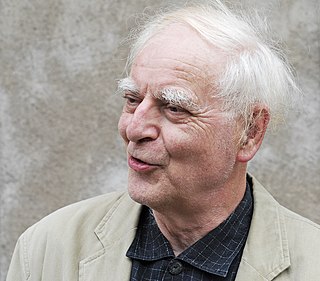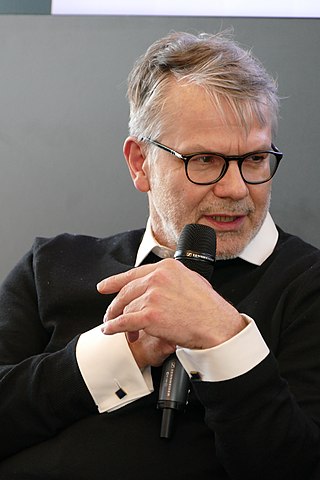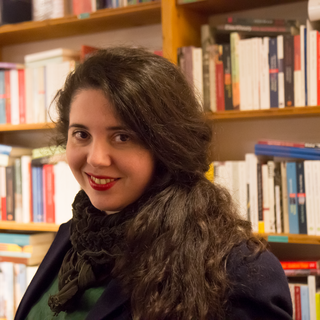
Robert Menasse is an Austrian writer.

Karen Duve is a German author. After secondary school, she worked as a proof-reader and taxi driver in Hamburg. Since 1990 she has been a freelance writer.

Adolf Muschg is a Swiss writer and professor of literature. Muschg was a member of the Gruppe Olten.

Durs Grünbein is a German poet and essayist.

Marcel Beyer is a German writer.
The German Book Prize is awarded annually, in October, by the German Publishers and Booksellers Association to the best new German language novel of the year. The books, published in Germany, Austria and Switzerland, are nominated by their publishers, who can propose up to two books from their current or planned publication list. The books should be in shops before the short-list is announced in September of the award year. The winner is awarded €25,000, while the five shortlisted authors receive €2,500 each. It is presented annually during the Frankfurt Book Fair.

Thomas Hettche is a German author.

Michael Krüger is a German writer, publisher and translator.

Prof. Dr. Hans-Ulrich Treichel is a Germanist, novelist and poet. His earliest published books were collections of poetry, but prose writing has become a larger part of his output since the critical and commercial success of his first novel Der Verlorene. Treichel has also worked as an opera librettist, most prominently in collaboration with the composer Hans Werner Henze.
Thüringer Literaturpreis is a literary prize of Germany. It is awarded every two years and is endowed with 12,000 euros. The winners are selected by a three-member independent jury.

Ernest Wichner is a German writer, editor, and literary translator of Banat Swabian origin.

Silke Scheuermann is a German poet and novelist. She was educated in Frankfurt, Leipzig, and Paris. She is best known for her debut novel Die Stunde zwischen Hund und Wolf, which has been translated into ten languages including English. She has won numerous German and European literary prizes and fellowships, including the Georg-Christoph-Lichtenberg-Preis, the Leonce-und-Lena-Preis, the Hölty Prize, the Bertolt-Brecht-Literaturpreis, and a Villa Massimo fellowship.

Marica Bodrožić is a German writer of Croatian descent. She was born in Svib in Cista Provo, Croatia in the former Yugoslavia. She moved to Germany as a child and currently lives in Berlin.

Judith Schalansky is a German writer, book designer and publisher.

Clemens J. Setz is an Austrian writer and translator.

Marjana Michailowna Gaponenko is a German writer born in Odesa, Ukraine.
Gertrud Leutenegger is a German-speaking Swiss poet, novelist, playwright and theatre director.

Ilma Rakusa is a Swiss writer and translator. She translates French, Russian, Serbo-Croatian and Hungarian into German.

Robert Schindel is an Austrian lyricist, director and author.

Judith Zander is a German writer and translator.

















